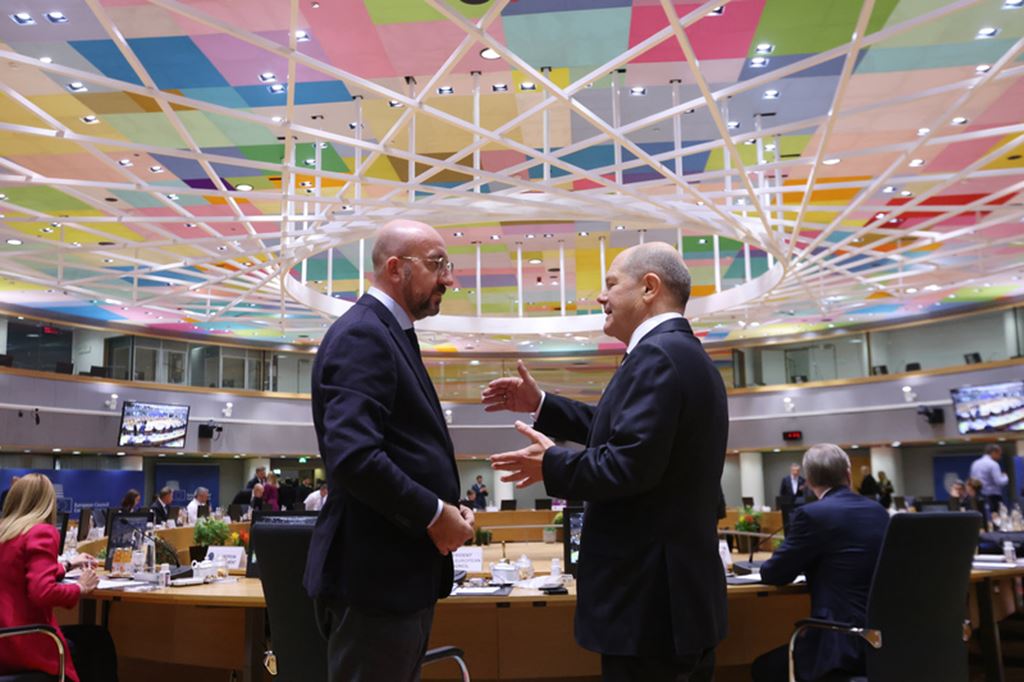
Charles Michel, president of the European Council and Olaf Scholz, chancellor of Germany.
The latest EU summit on energy ended with an agreement to keep talking.
Leaders of the block’s 27 member states met in Brussels on Thursday, October 20th, to again discuss ways to address the energy crisis.
After negotiations that went late into the night, the European Council issued a statement calling on both member states and the EU Commission to submit plans for everything from reducing energy demand to setting price caps and lowering bureaucracy for wind and solar energy.
“The European Council has agreed that in light of the ongoing crisis, efforts to reduce demand, to ensure security of supply, to avoid rationing, and lower energy prices for households and businesses across the Union need to be accelerated and intensified, and the integrity of the Single Market has to be preserved,” a statement said.
“EU leaders called on the Council and the Commission to urgently submit concrete decisions on additional measures and on the Commission’s proposals,” it added.
Member states have been deeply divided on the best way to handle the energy crisis, and the meeting kept all options on the table. They made headway when Germany acceded to the possibility of price caps.
Various price cap mechanisms have been floated from the so-called Iberian mechanism, which has already been in place for months in Spain and Portugal and allows the government to cap electricity produced through natural gas at about 50 euros per MWh.
Germany prefers avoiding price caps altogether, opting for EU member states to work together to strong-arm international suppliers into offering natural gas at a lower price, the so-called “dynamic price corridor” or “buyers’ cartel.”
The two options, price caps vs. buyers’ cartel, have particularly pitted Germany and France against each other.
In his last EU summit representing Italy, outgoing Italian Prime Minister Mario Draghi begged for a common fund to help lower energy prices. His plea led to the allowance for “common European level solutions, where appropriate,” a nod to both Italy and more fiscally conservative countries such as Holland.
The council also called on the commission to explore using its emergency powers to fast-track the simplification of bureaucracy related to wind and solar energy projects.
Hungary opposed mandatory joint purchasing, leading to measures being made voluntary.
French President Emmanuel Macron left the meeting satisfied that the council had reached the dual goals “to maintain European unity” and “decrease gas prices.” He saw in the meetings’ conclusions a “clear mandate” for the commission to start working on a gas price cap proposal.
Germany’s Chancellor Olaf Scholz, though, warned that more meetings may be needed to reach any block-wide agreements, saying that if energy ministers do not succeed in finding a consensus, “the European Council will have to go back to the drawing board.”
Energy ministers are set to meet later in October. Snippet: Member states have been deeply divided on the best way to handle the energy crisis, and the meeting kept all options on the table, with Germany finally giving in to the possibility of price caps.
